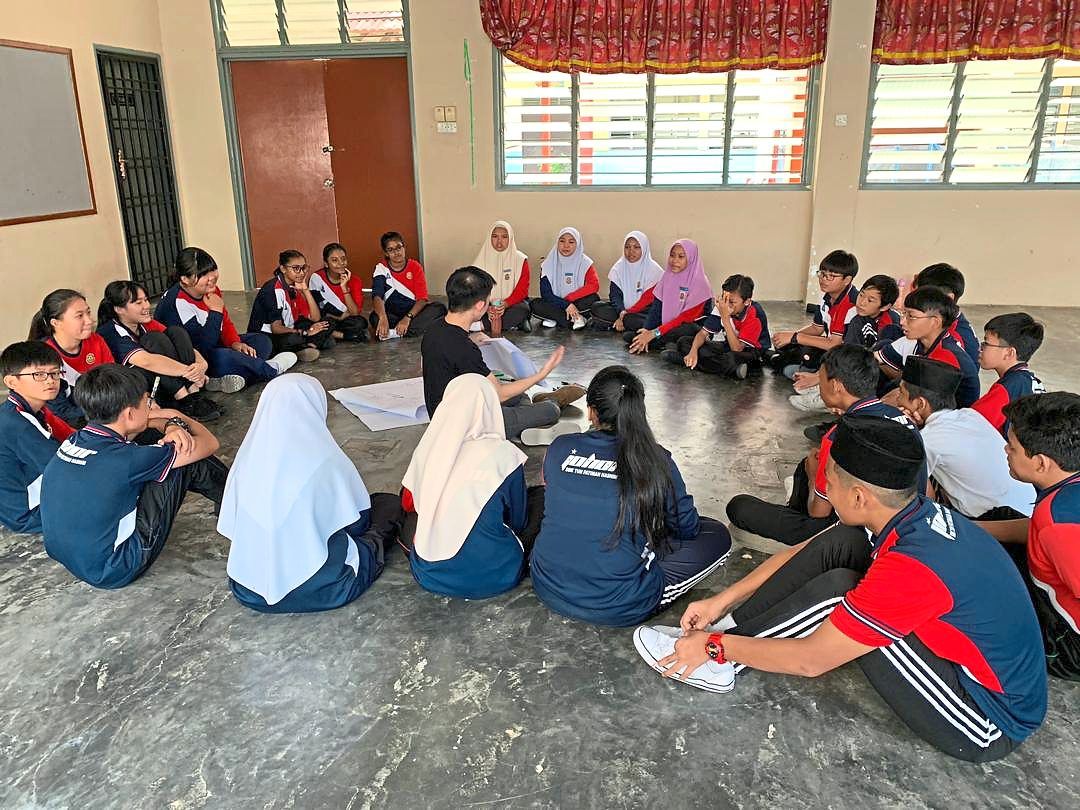December 5, 2022
KUALA LUMPUR – AMID the heated election battles recently, one “fight” stood out: the youth-led #KamiNampak campaign against the use of inflammatory race and religion cards in politics.
#KamiNampak (Malay for “we see”) called out several candidates who misused race or religion issues in their social media when campaigning in the recent 15th General Election.
“The use of the race and religion cards includes disinformation, misinformation and malinformation of a racial or religious group, falsely manufacturing or associating a political, economic or social threat, and emphasising the use of one’s own race or religion to garner support,” notes Architects of Diversity (AOD), the non-profit youth organisation spearheading the campaign.
Tasked with detecting any such conflict rhetoric that incited race and religion issues, more than 60 youth volunteers for #KamiNampak monitored the social media accounts of election candidates in all 222 parliamentary contests across Facebook, Twitter, TikTok, Instagram and YouTube during the GE15 campaign period.
As Jason Wee, the co-founder of AOD and coordinator for #KamiNampak, explains, “The main goal of this campaign is really to incentivise politicians to not use race or religion in their efforts to gain support.
“Such political rhetoric is employed to highlight differences between people and opposition towards groups and ideas. These narratives blame various groups for social problems, reinforcing negative stereotypes, and may create demand for policies that harm a specific racial or religious group.”
The use of race and religion within political campaigns is “short-sighted and creates hostility, hurting the ability of different communities in Malaysia to trust each other”, says Wee, stressing that this type of rhetoric and political strategies are counterintuitive to nation-building that truly embraces multiculturalism and celebrates differences in identities.
This was why #KamiNampak urged GE15 candidates to campaign on policies and practices instead of using race and religion as selling points.
Sadly, the use of race and religion escalated to dangerous levels during GE15, and some party leaders even sowed the seeds of possible future violence, Wee notes.
“Party leaders provoking each other with generalised, inflammatory remarks are simply irresponsible and can fuel further conflict,” he laments.
Adnan Yunus, AOD programme associate concurs.
“It is time for racial and religious sentiment in Malaysian politics to be a thing of the past. This is necessary for our democracy to experience a more healthy and mature practice in election campaigning and governance,” Adnan says.
The #KamiNampak campaign first made an appearance during the Melaka state elections in November last year, over the course of which they recorded up to 17 candidates playing the race and religion cards in their campaigns.
In GE15, #KamiNampak highlighted 14 politicians who shared controversial racial or religious statements on social media even in the first few days of their campaign. The group was also a part of the Rapid Response Team of Centre for Independent Journalism’s GE15 social media monitoring campaign. (For details of the use of race and religion in GE15, go to bit.ly/cij_ge15.)
Wee, 26, co-founded AOD with two friends in 2018 after he graduated from the School of Public and International Affairs at Princeton University in the United States.
Aimed at bridging communities and identity groups among youth in Malaysia for justice, peace and a sustainable future, AOD has conducted various programmes promoting diversity and inclusiveness, especially in education.

A group discussion on identity and inter-group understanding with students in a secondary school in Johor. – Photo courtesy of Jason Wee
“#KamiNampak originated as an idea from one of our programmes called Hackathon Politik, a competition for youth to come up with ideas on how to reduce racial politics. And one of the proposals to make election campaigns better was to have a watchdog for conflict rhetoric that uses race and religion in politics,” he tells Sunday Star.
When a snap state election was announced with the dissolution of the Melaka State Legislative Assembly on Oct 4, 2021, the idea was instantly brought to life as #KamiNampak, beginning with posts on social media inviting the public — especially young people — to volunteer and fight for more ethical election campaigns.
Wee believes that it is also important to unpack how this harmful political strategy of using the race and religion cards works.
“We need to understand how it works, especially with politicians’ ability to speak to specific crowds. So for example, if you say something in Mandarin, maybe only your Chinese audience can understand it. Because of this, politicians get away with saying a lot of things about other racial groups, or other religious groups.”
He concedes that more needs to be done to raise public awareness about the issue as well as #KamiNampak’s work. However, Wee is heartened by the increasing number of young Malaysians who have decried public figures for their blatant bigotry on social media sites such as Reddit, Twitter and Instagram.
Since its emergence in 2021, the #KamiNampak campaign has seen a growing interest among Malaysians online – there are 558 likes for an Instagram post about the availability of volunteer positions, and 143 retweets of a similar post on Twitter.
It is still a work in progress but #KamiNampak is clearly a campaign to look out for in the future.
AOD’s upcoming plans for #KamiNampak include monitoring future elections, an example being the state elections that need to be held next year, and developing a pledge that election candidates can make about not using the race and religion cards in their campaigns.
While signups to be part of #KamiNampak’s volunteer team closed in October, we may see openings make a return soon. It’s going to be interesting to see what impact this campaign will have on Malaysia’s political climate in the years to come.

Wee (speaking) and team at a press conference to launch #Undi100, a joint campaign with youth movement Undi18 to encourage policy-oriented politics and youth voter turnout in Kuala Lumpur. – Photo courtesy of Jason Wee

